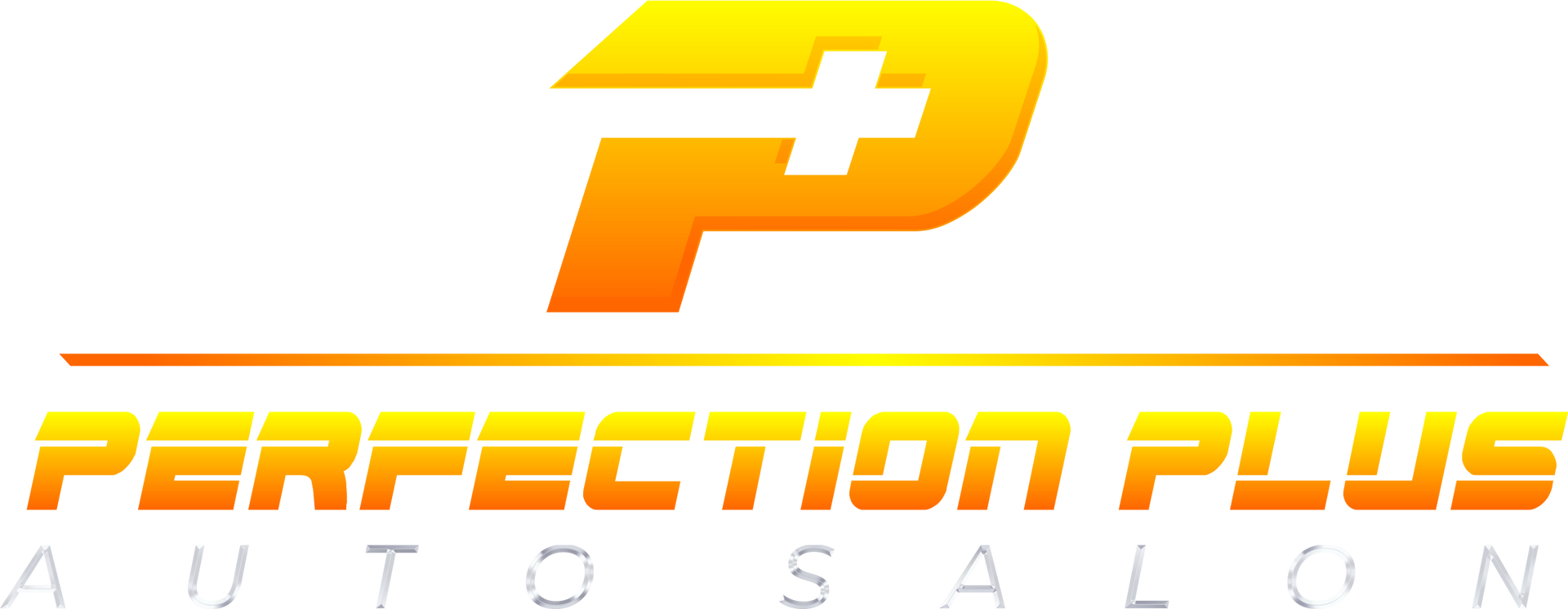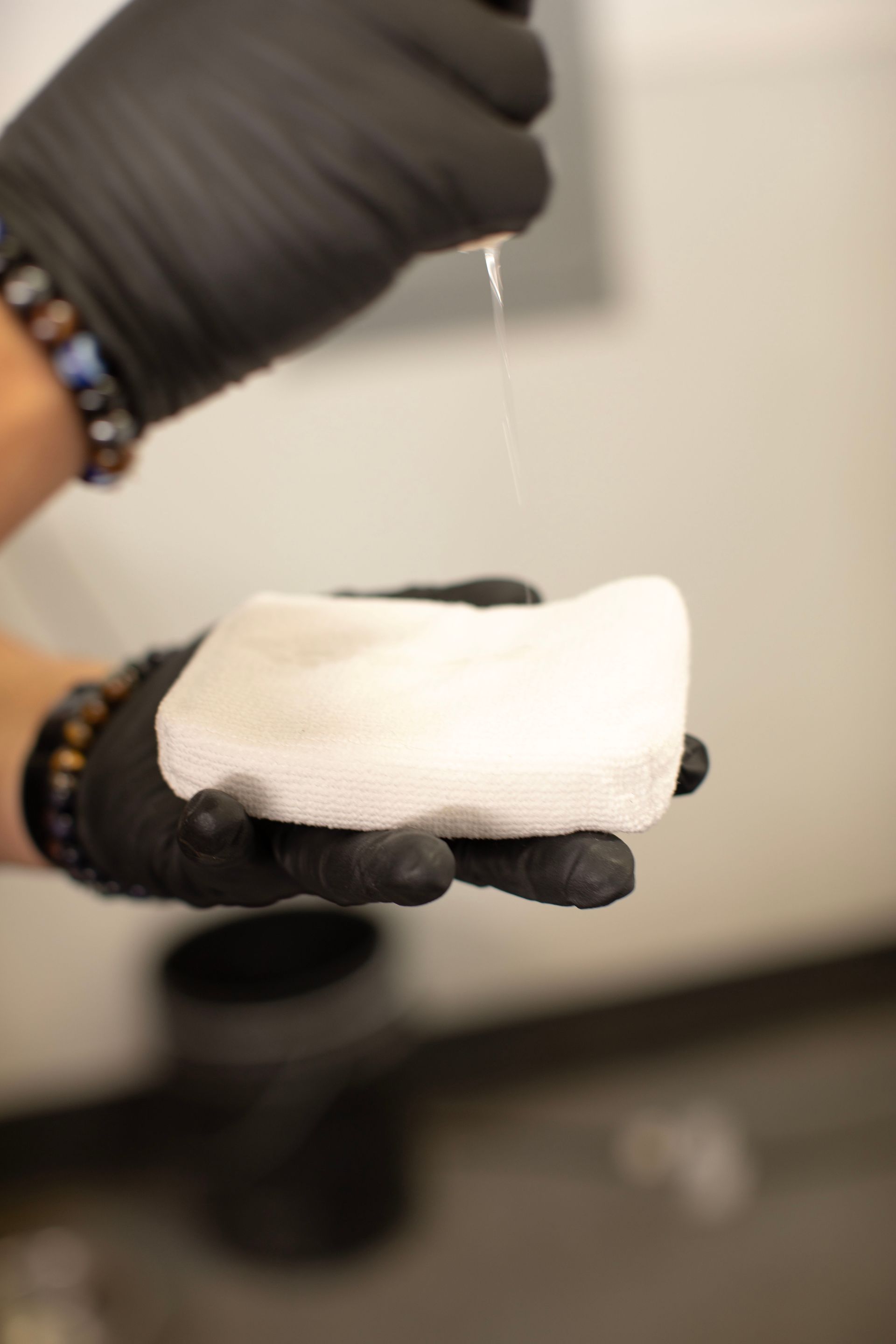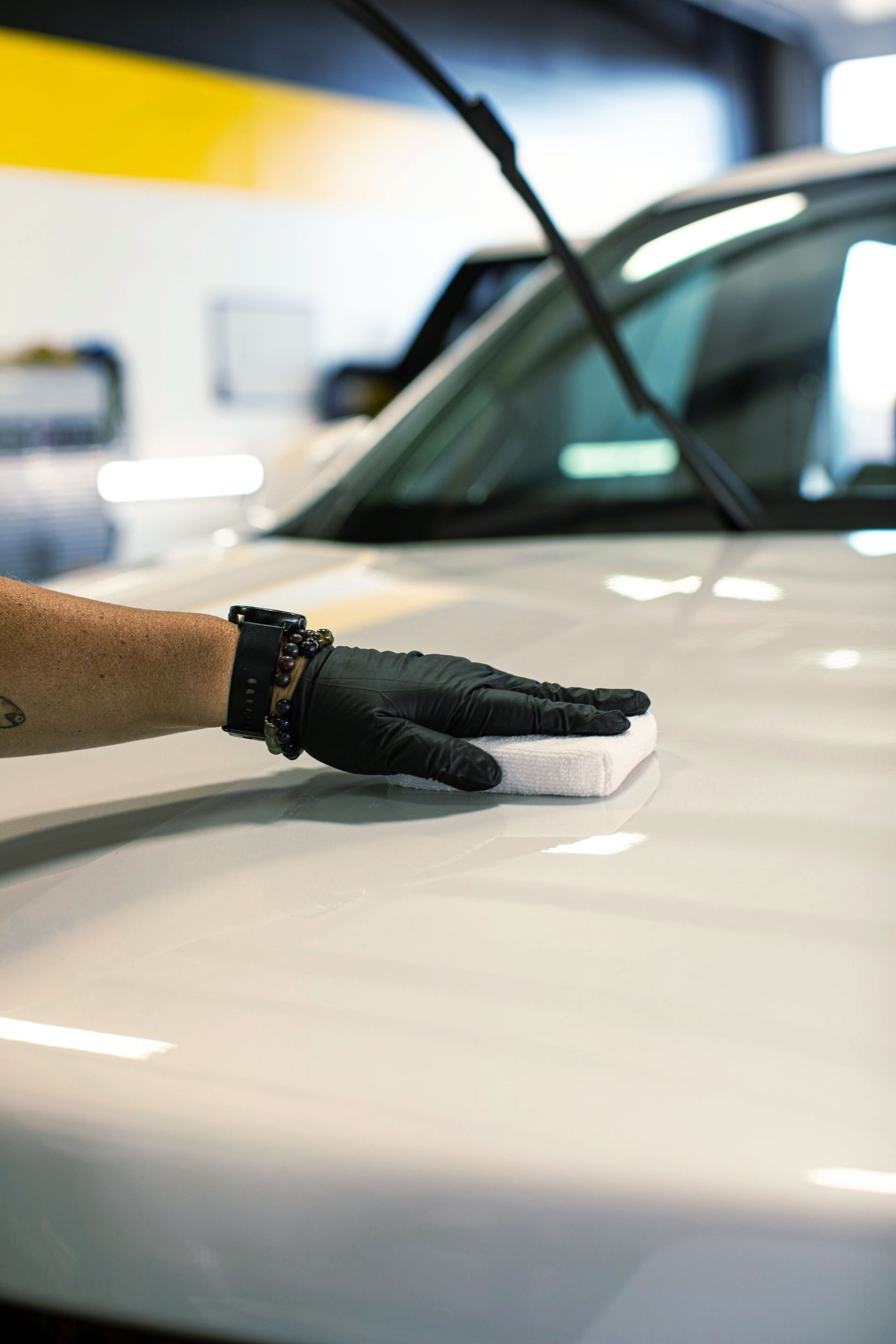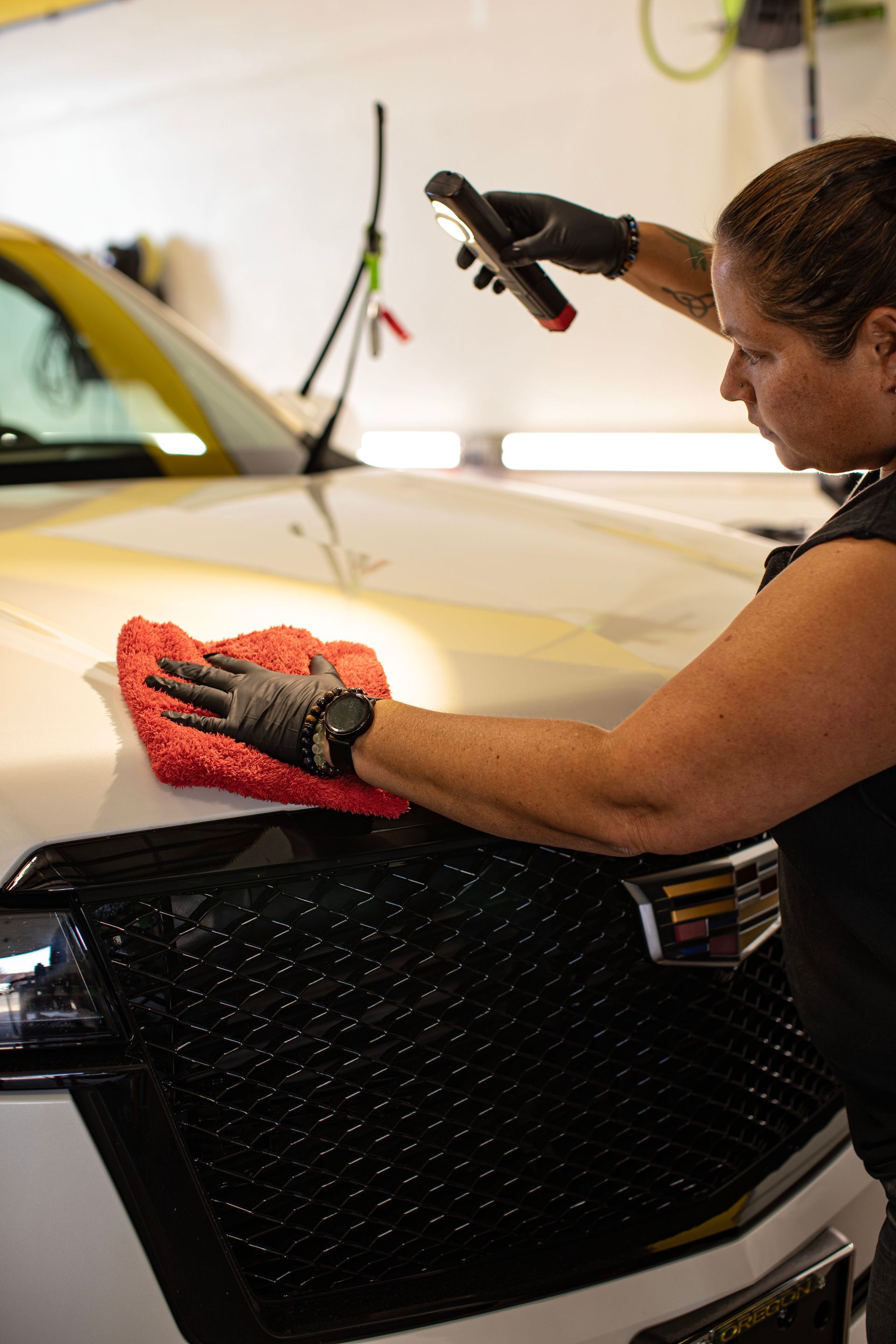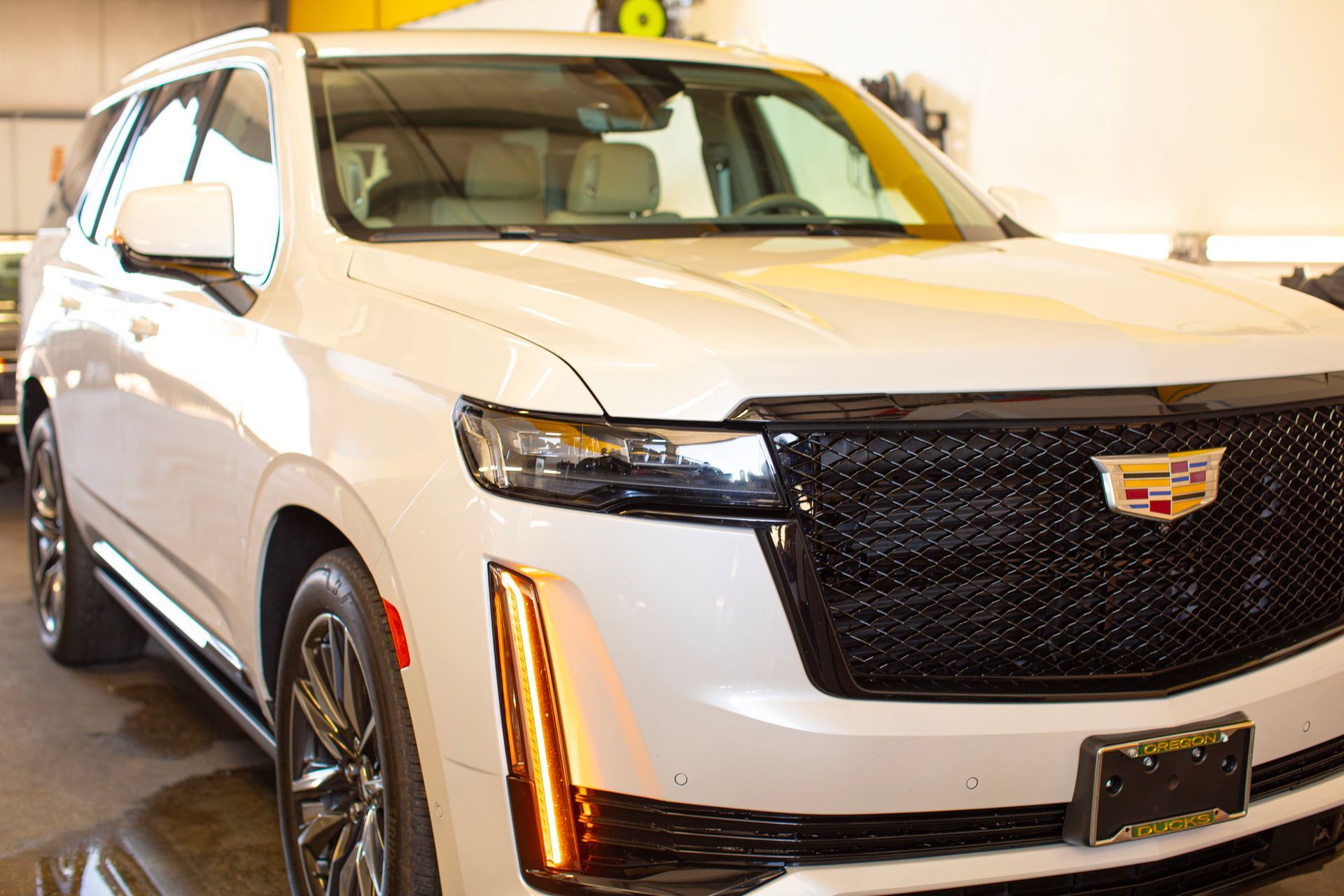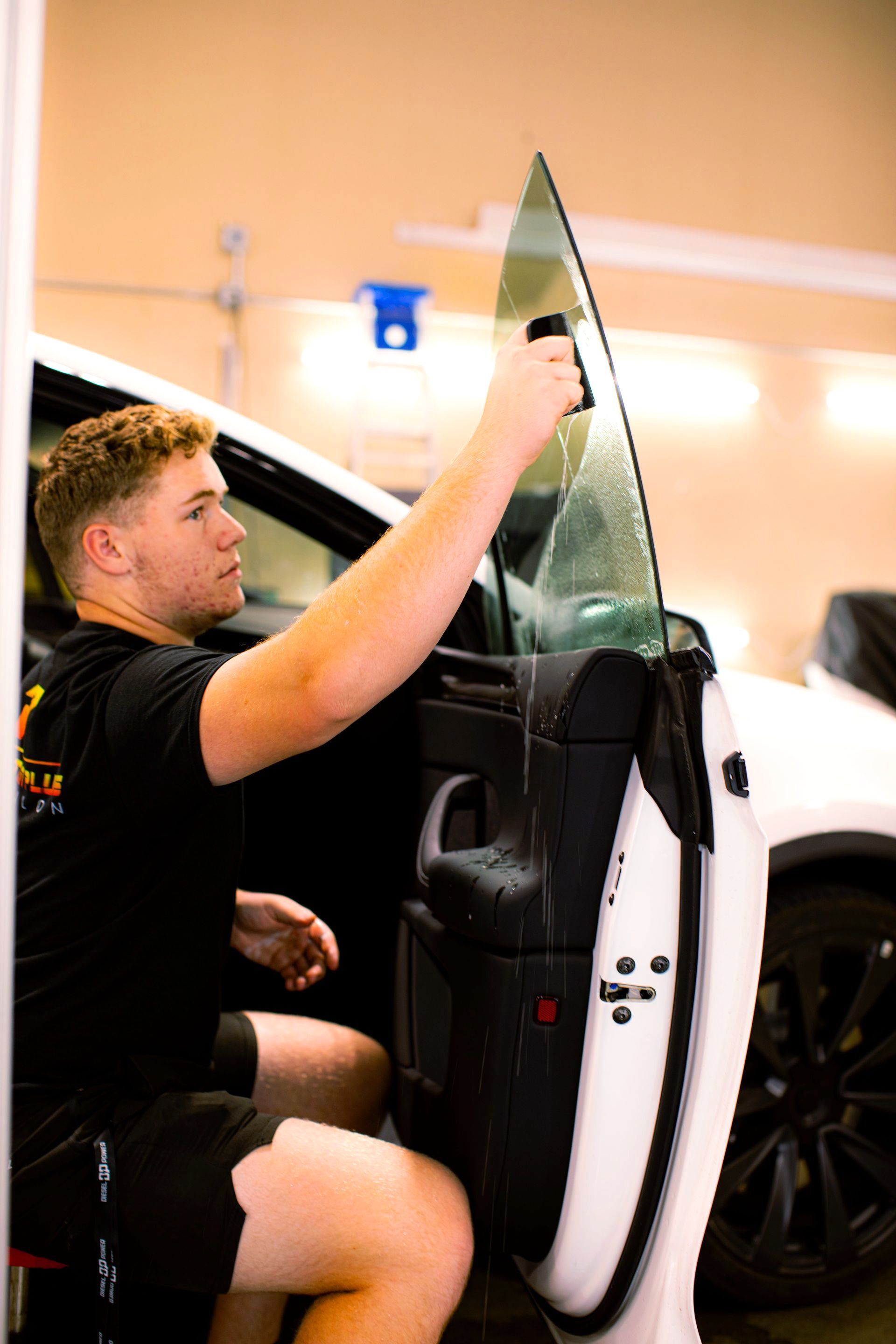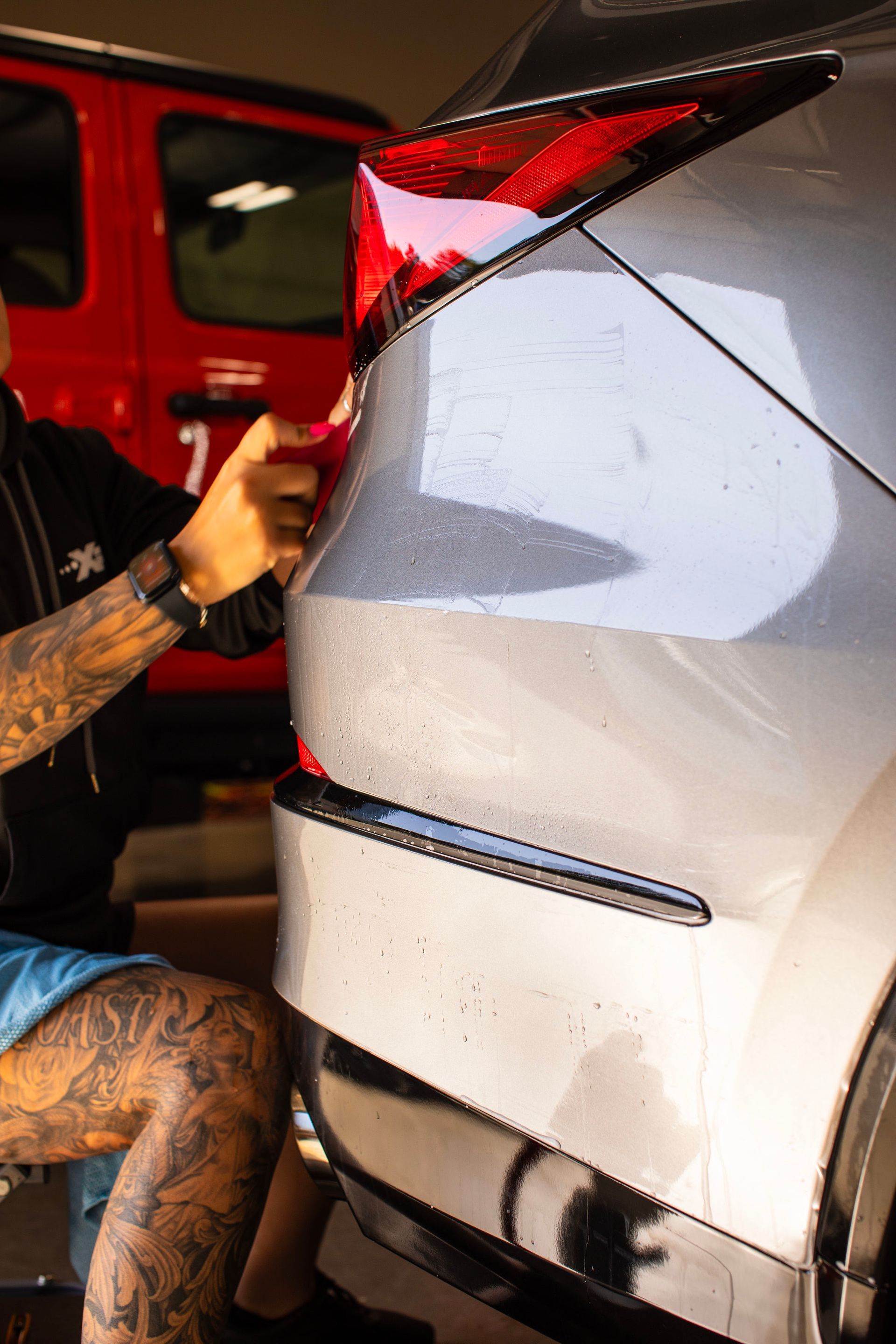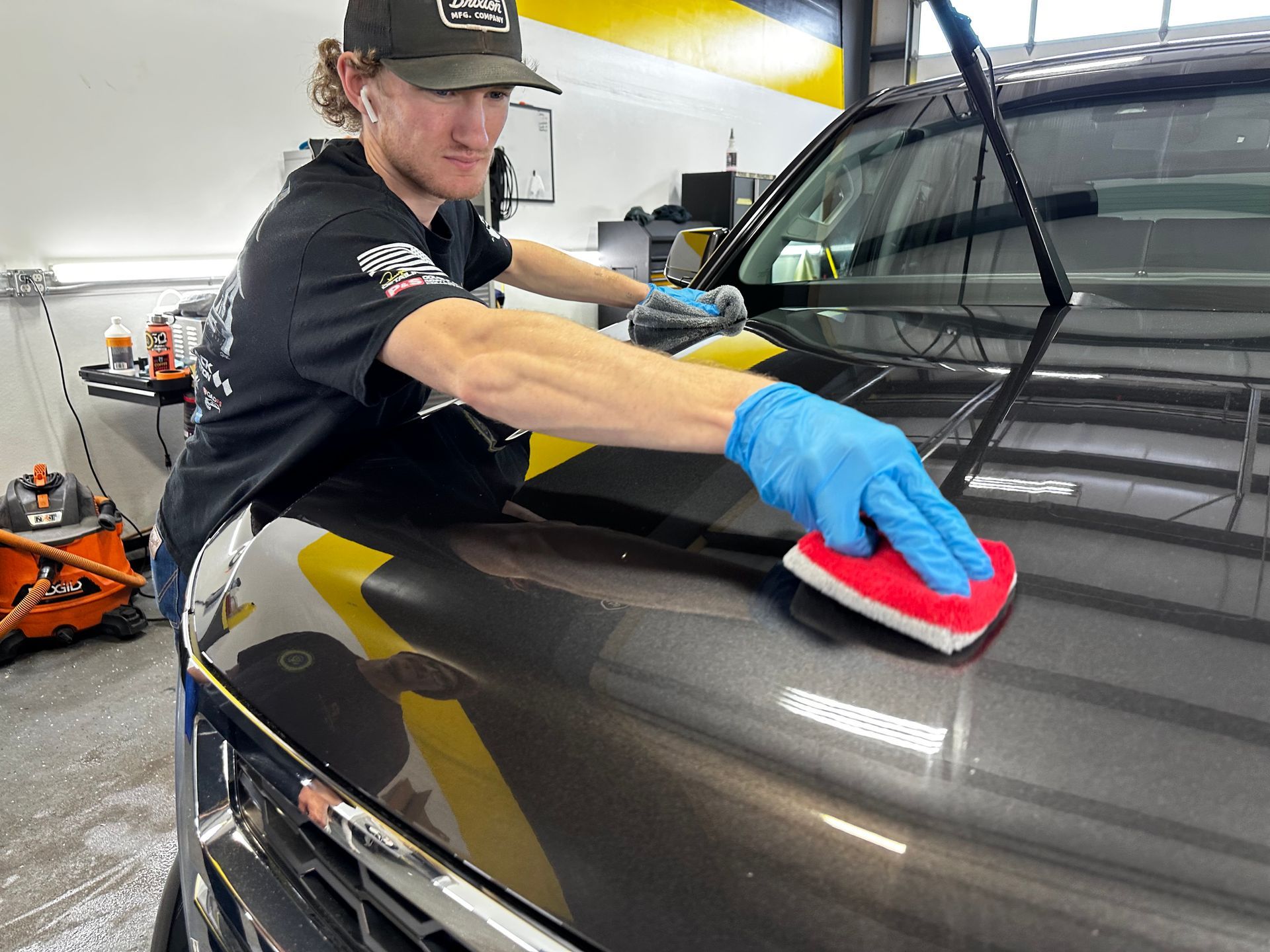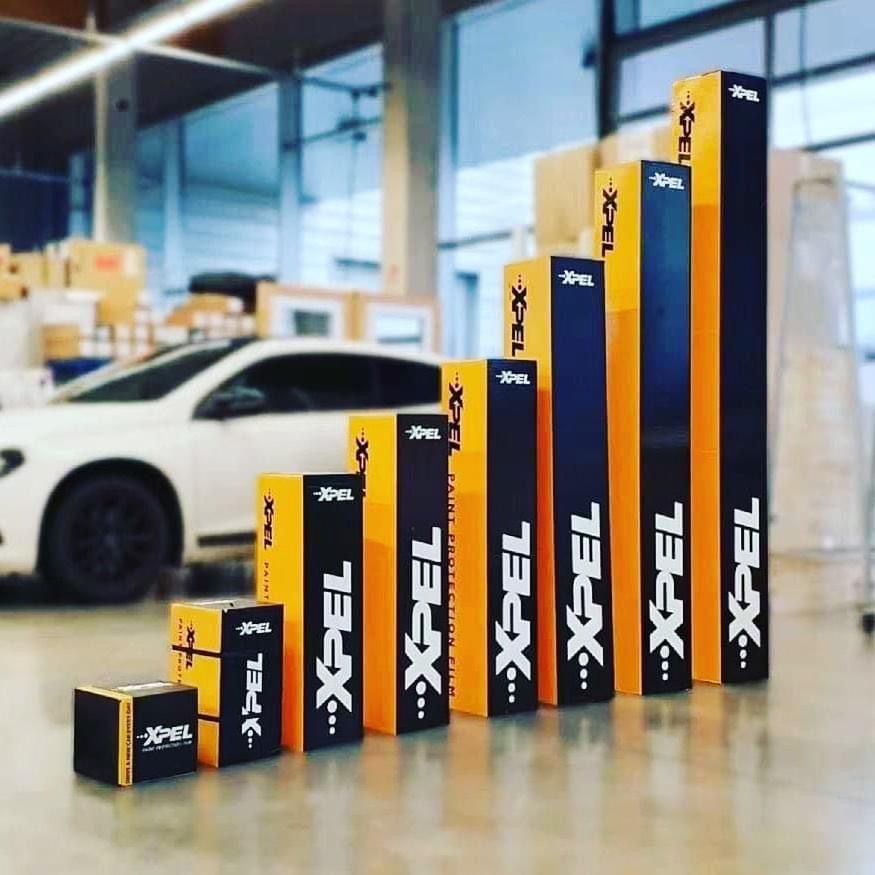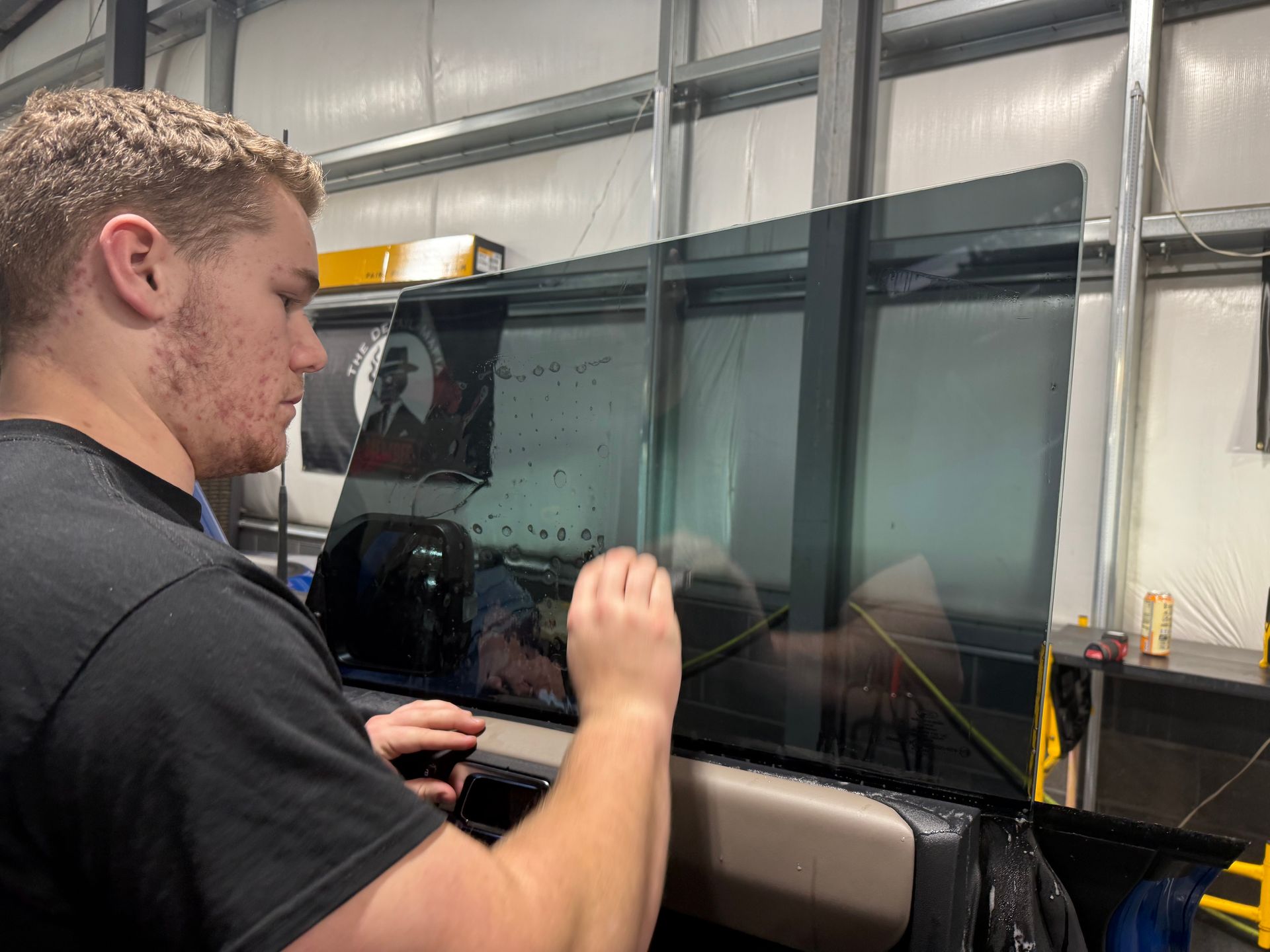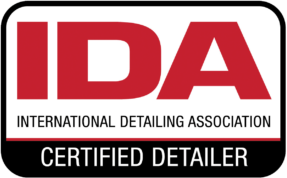DIY vs. Professional Ceramic Coating: Pros, Cons, and Cost Comparison
GET A FREE ESTIMATEWhether professionally or by yourself, ceramic coatings offer advantages like protecting your car's paint. Yet, opting for a professional service delivers precision application, promising long-lasting results because of their expertise and high-quality products. On one hand, with DIY, you'll find cost savings, but it requires a substantial time investment and the end result might lack the durability of a professional application.
The primary advantage of DIY ceramic coating is cost-effectiveness, especially for individuals with multiple vehicles. However, professional ceramic coating application services offer superior expertise and attention to detail and may deliver more consistent and long-lasting results, particularly when coupled with paint correction services.
Comparing DIY and Professional Ceramic Coating
When it comes to safeguarding your vehicle's paint job, the choice between a DIY ceramic coating or a professional service can be quite the puzzle. Let's evaluate these options to see which best fits your needs.
Firstly, let's talk about cost. The price tag is often a crucial factor when making this decision. While the upfront cost of a DIY ceramic coating kit is relatively low, ranging from $50, it's crucial to consider the additional expenses of tools and materials required, which can total around $600. On the other hand, professional ceramic coating services usually range from $500 to $2000+, depending on the size of the vehicle and any corrections needed. Despite the higher initial investment, a professional service often includes meticulous paint correction and top-tier expertise, which justifies the cost.
One must consider the level of expertise required. Applying a ceramic coating is a meticulous process that demands patience and attention to detail. While DIY kits can be user-friendly, they still require significant expertise and thorough surface preparation involving washing, decontamination, clay bar usage, polishing, and then finally coating application. This process can easily take longer than 3 hours, encompassing an all-day endeavor. In contrast, professional technicians are well-versed in these meticulous processes and possess the skills to execute them with precision and finesse.
In terms of durability and quality, professional ceramic coatings often boast extended lifespans of 3-5 years, or even more, compared to the 1-2 year durability of DIY coatings. Consumer-grade coatings are reputable options for those who opt for DIY applications but may not offer the same robustness as coatings applied by professionals. Considering these factors is essential when choosing between a DIY or professional ceramic coating. Each approach has its advantages and drawbacks that necessitate careful consideration before making an informed decision.
Advantages of Professional Ceramic Coating
When it comes to expertise and precision, professional ceramic coating services are unparalleled. These professionals have spent years perfecting their craft and know the ins and outs of applying ceramic coatings with meticulous attention to detail that ensures a proper and durable finish. The expertise they bring to the table minimizes the risk of streaks, unevenness, or any application mishaps, delivering a flawless, showroom-quality finish. Moreover, professional ceramic coating services offer customized solutions tailored to meet the specific needs and conditions of your vehicle. They don't just apply a generic coating; instead, they carefully assess your car's paintwork, the level of correction needed, and your preferences to deliver a tailor-made protection and enhancement solution that perfectly suits your car.
Another key advantage is the longevity and warranty that come with professional-grade ceramic coatings. These coatings often come with longer warranties and guarantees, offering peace of mind and assurance of quality protection for an extended period. This means that you can rest easy knowing that your vehicle is well protected against environmental elements and everyday wear and tear for an extended period of time. For example, let's say you're an enthusiast who loves taking your classic car out for drives on weekends. Professional ceramic coatings provide reassurance that your beloved vehicle will retain its glossy appearance for years to come, even with regular exposure to sunlight and road debris.
In summary, professional ceramic coating services not only provide expert-level precision and customization but also long-term assurances through extended warranties. These advantages make them an appealing option for car owners who want an exceptional level of protection and aesthetics for their vehicles.
Expenses Involved: A Cost Comparison
When considering ceramic coating, costs play a significant role in decision-making. Let's delve into the expenses and compare the costs of DIY ceramic coating kits with professional services.
- DIY Cost Considerations: A DIY ceramic coating kit typically ranges from $50 to $200. Brand, quantity of the product, and additional materials like applicators and microfiber cloths all have an impact on price. While these kits may seem affordable initially, they demand a substantial time commitment and skill for effective application. It's critical to consider the practicality of investing in a DIY kit. Do you have the necessary time, patience, and attention to detail? Although the initial cost might be lower compared to professional services, there are other considerations, such as the learning curve associated with DIY applications and potential correction work if mistakes are made, incurring additional expenses.
- Professional Service Costs: Professional ceramic coating services often come with a higher price tag, ranging from $500 to $2000 or more. The total cost depends on factors such as the vehicle size and the extent of paint correction required prior to application. The initial cost of professional services can seem daunting. However, it's vital to recognize that these services offer expert application by skilled professionals using premium-grade products. Additionally, professional installation typically includes warranties and guarantees for longevity and effectiveness. For instance, higher-end ceramic coatings often come with multi-year warranties, ensuring that your investment is protected in the event of premature wear or damage. These assurances are invaluable for vehicle owners seeking long-term protection and durability.
Thus, when evaluating whether to opt for a professional service or a DIY kit, it's crucial to weigh not only the initial expense but also the long-term benefits and potential drawbacks associated with each option. Understanding the costs involved in both DIY and professional ceramic coating applications provides important insights that can guide you in making an informed decision based on your specific requirements and budget.
Evaluating Longevity and Quality
The durability and long-lasting protection offered by ceramic coatings are the primary factors that drive vehicle owners to invest in this technology. Professional ceramic coatings typically have a longer lifespan, ranging from 2 to 5 years or even more. This extended durability not only shields the vehicle against environmental elements but also upholds its aesthetic appeal for an extended period of time. The robust nature of professional-grade ceramic coatings is attributed to their advanced formulation and application techniques. These coatings are engineered to endure various environmental stressors, including UV rays, dirt, water, and other contaminants. This not only keeps the vehicle's surface looking pristine but also provides peace of mind to owners regarding long-term protection against corrosion and oxidation.
On the contrary, DIY ceramic coatings tend to have a shorter expected lifespan, usually lasting from 6 months to 2 years. The variation in longevity is often linked to the application process and subsequent maintenance. While some DIY applications may provide decent protection for up to two years when applied meticulously, others might offer a shorter lifespan if the application process is not performed optimally. This discrepancy highlights the dependence of DIY ceramic coating longevity on factors such as proper surface preparation, application technique, curing time, and maintenance practices. An imperfection during the application process or inadequate maintenance could compromise the coating's ability to deliver lasting protection.
In essence, while professional ceramic coatings boast an impressive longevity range due to their specialized formulation and application by skilled technicians in controlled settings, DIY options rely heavily on the user's expertise and precision during the application process. It's evident that the anticipated durability of a ceramic coating is significantly influenced by whether it's professionally applied or a DIY endeavor. Understanding these differences in longevity and quality between professional and DIY ceramic coatings is crucial for vehicle owners contemplating the best solution for protecting their vehicles.
Level of Protection Offered by DIY vs Professional Services
When it comes to safeguarding your vehicle's paint, both DIY and professional ceramic coatings provide different levels of defense. Professional ceramic coatings are engineered to offer a higher level of protection against various elements that can harm your vehicle's exterior. They excel at shielding the vehicle from UV rays, oxidation, chemical contaminants, and other environmental contaminants, thus preserving its appearance.
Professional-grade coatings employ advanced formulations with stronger chemical bonds and higher resistance to environmental stressors. These coatings create a hardened layer on the vehicle's surface, providing long-lasting protection that requires less frequent maintenance. Imagine it as a shield made of advanced materials that withstands the strongest attacks—professional-grade ceramic coatings act as a robust barrier, ensuring that your vehicle's paintwork remains pristine for an extended period.
On the other hand, DIY ceramic coatings may offer basic protection against some elements but may not provide the same durability and resilience as their professional counterparts. This difference in effectiveness can lead to the need for more frequent reapplications of DIY coatings to ensure sustained protection. DIY coatings often lack the advanced chemical composition and technology of professional coatings, resulting in a lower level of performance. Consequently, they may require more frequent touch-ups and reapplications to maintain their protective properties.
Understanding the differences in protection levels offered by DIY and professional ceramic coating services is crucial to making an informed choice that aligns with your specific needs and expectations for your vehicle's exterior maintenance. In the realm of ceramic coating, balancing durability with convenience is paramount. Making an informed decision between DIY and professional options ensures that your vehicle receives the level of protection best suited to its needs.
Expert Ceramic Coating Specialists in Redmond, OR
Experience the pinnacle of automobile perfection at Perfection Plus Auto Salon, Redmond, Oregon's top choice for trusted ceramic coating services. Our skilled experts offer superior ceramic coating options that go above and beyond simple defense to keep your car looking like new for many years to come. With our state-of-the-art ceramic coatings, you can put an end to concerns about UV rays, fading paint, and environmental pollutants. They also improve the aesthetic appeal of your car. Select Perfection Plus for exceptional outcomes rather than settling for mediocre ones. Make an appointment with us right now to see how our superior ceramic coating services can improve your driving experience. Call us at
(541) 598-6193 to get started!
